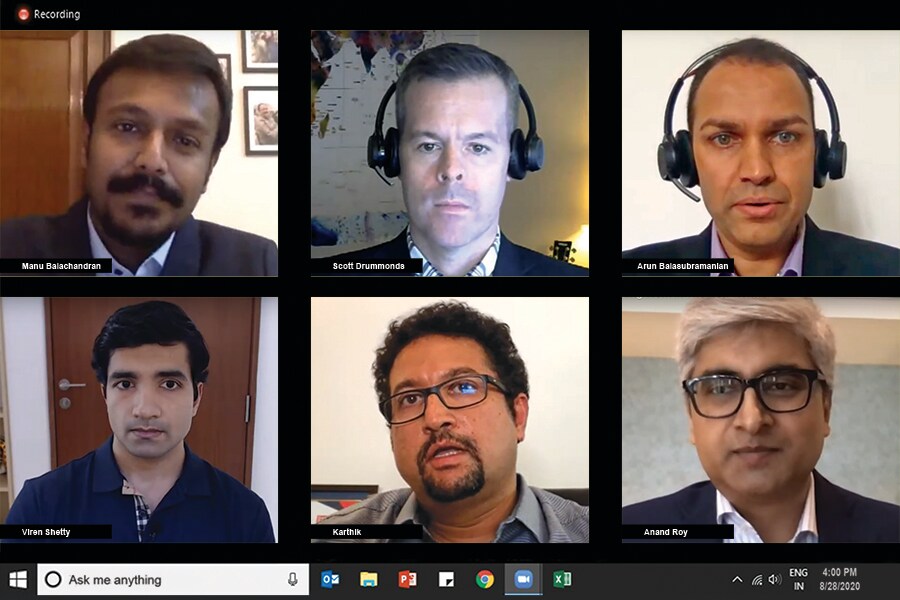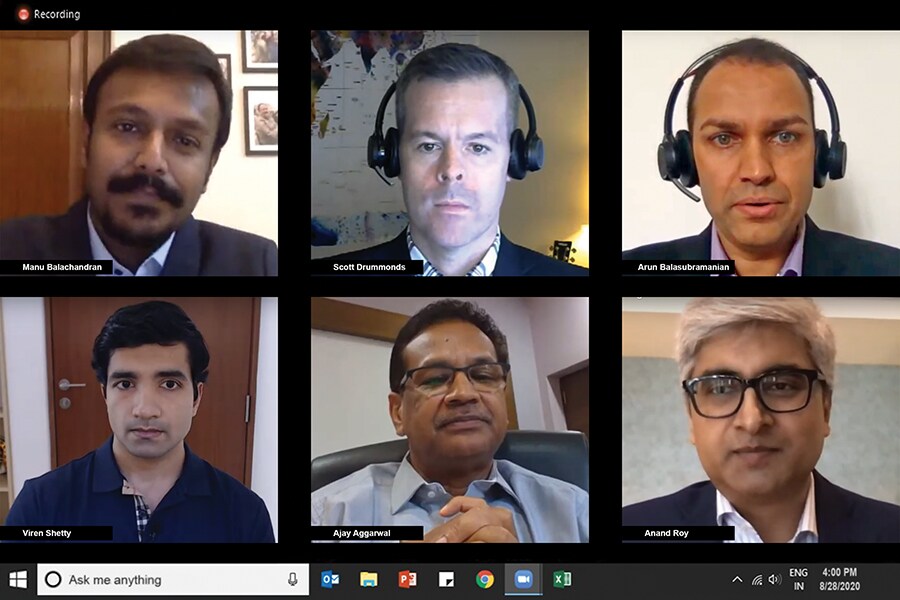
Future-proofing businesses through technology solutions
Getting digitally equipped in an increasingly 'remote working' world

The ongoing COVID-19 pandemic has altered many perceptions. Amongst others, it has unveiled how important healthcare is to our society. The much-deserved respect for healthcare workers is finally being expressed and there is also an increasing acknowledgement of the need for insurance. Beyond the healthcare sector, the crisis has also transformed the perception of technology from being just an enabler, to being a real opportunity to improve workflows and remove roadblocks.
To discuss how technology has provided timely and appropriate solutions for businesses during this crisis, especially those from the healthcare sector, Forbes India, in association with ServiceNow, hosted a virtual conversation - CXO Speak: disrupting work in the new normal. A select clique of CXO, including Ajay Aggarwal, President and CFO, Cyient; Karthik Rajagopal, COO, Manipal Hospital; Viren Shetty, Executive Director and Group COO, Narayana Health; Anand Roy, MD, Star Health; Arun Balasubramanian, MD, India & SAARC, ServiceNow and Scott Drummonds, AVP, Solution Consulting, APJ, ServiceNow, shared their views and insights on the theme.

Being at the frontline in the battle against COVID-19, medical care and health insurance have had to stand strong since the outbreak of the pandemic, rendering their services while ensuring the safety and well-being of their own employees. This was possible due to technology solutions that facilitated work from home, digitization of records and automation of processes and workflows. “We made a rapid transition to digital, simplified processes and ensured 24X7 service to cater to our customers,” stated Anand Roy. “Insurance has always been a very paper-heavy business but our claims process is now digitised and these changes will stay in the long run. Work from home has been a great success for us and part-time employment may be something we'll consider in the future.”
Viren Shetty explained how during the early lockdown, not only patients were unable to get to hospitals, often doctors could not get to the hospitals either. This led to setting up online consultations wherever possible. Looking ahead, he said, “We are trying to push for a lot of patient-facing initiatives, which historically would not have been in the toolbox for doctors to even think about.” Some of these novel initiatives included long-term care management for patients from home, online payments for these services, etc.
Companies experienced first-hand how technology could greatly improve efficiency and enable them to deliver better customer experiences, while keeping employees happy. As a result, they are more willing to spend on technology, going forward. Karthik Rajagopal shared, “We have ramped up spending on technology to become future proof.” Putting technology in place has enabled his hospital to conduct over 30,000 virtual consultations. However, he admitted, “Patients still prefer physical consultations. As the lockdowns are eased, we have seen an uptick in in-person appointments.” Nevertheless, the trend may be changing and forward-looking healthcare organisations are working towards installing suitable technology in anticipation of these changing trends. In the future, patients may prefer accessing care while staying at home and it will drive more technology disruption in healthcare.
While adoption of technology certainly appears to be the way of the future, Ajay Aggarwal cautioned, “When you are using technology extensively, the most critical aspect is dealing with cyber security. Ensuring technology systems are robust must become a priority.”




